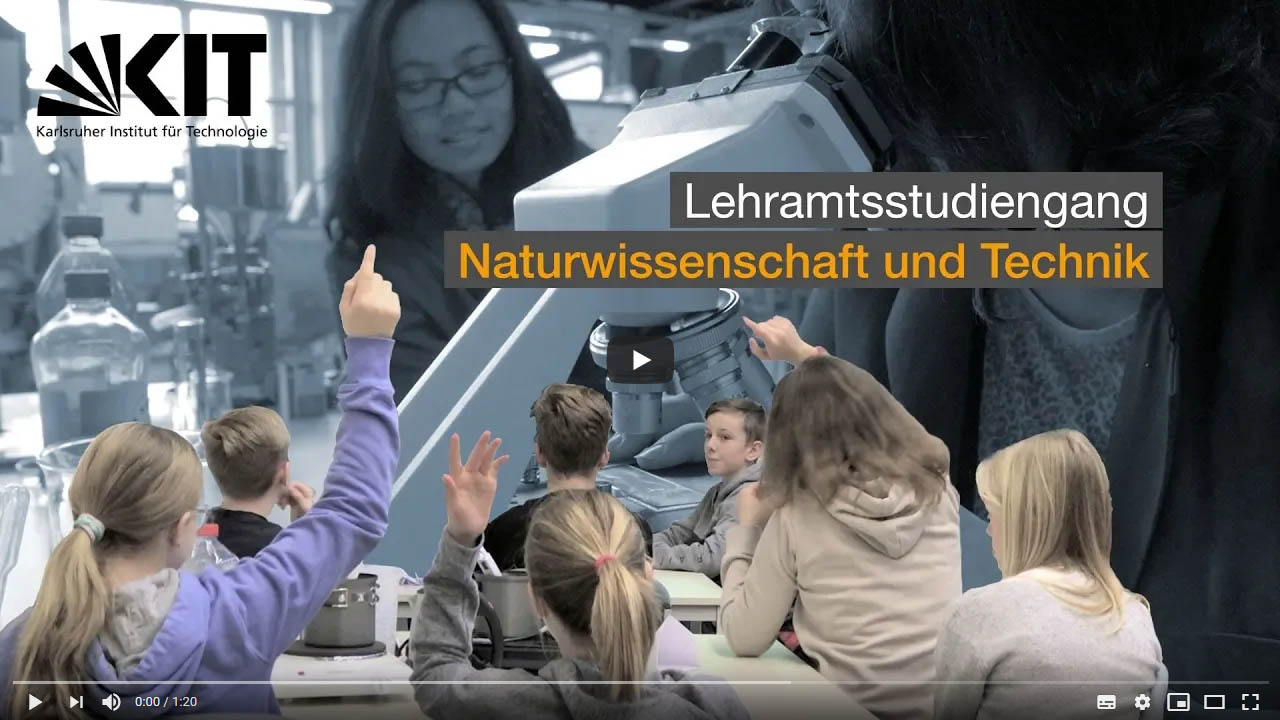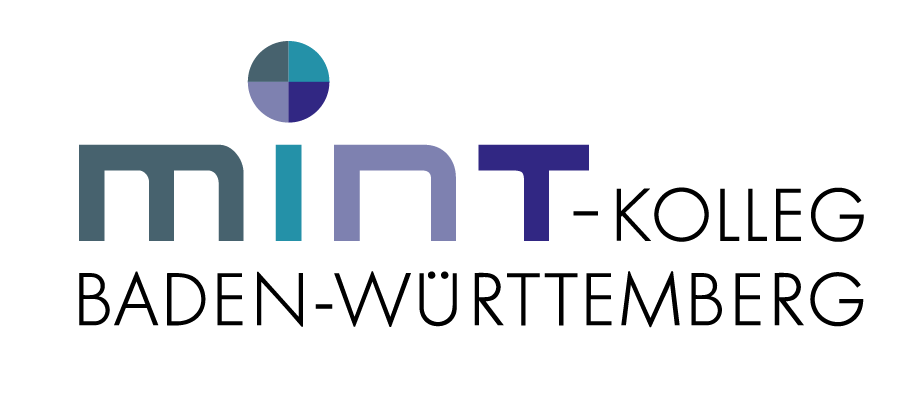Degree: Bachelor of Education (B.Ed.)
Regular program length: 6 semester (full-time program)
Credit points (ECTS): 180 credit points
Language of instruction: German
Higher semester: no
Higher semester: winter and summer term
First semester: September 15
Higher semester: September 15 for winter term, March 15 for summer term
First semester: July 15
Higher semester: July 15 for winter term, January 15 for summer term
Studiengangsbeschreibung
Abschluss und Studiendauer
3 Jahre Regelstudienzeit bis zum Abschluss als Bachelor of Education (B.Ed.); in Kombination mit den künstlerischen Fächern Kunst oder Musik an den Partnerhochschulen Staatliche Akademie der Bildenden Künste Karlsruhe (AdBK) und Hochschule für Musik Karlsruhe (HfM) erhöht sich die Regelstudienzeit auf 4 Jahre. Der Studiengang setzt sich aus zwei Teilstudiengängen (wissenschaftliche Hauptfächer) und dem Bildungswissenschaftlichen Begleitstudium zusammen. Insgesamt müssen 180 Leistungspunkte (LP) (analog dem European Credit Transfer and Accumulation System – ECTS) erworben werden. Die individuelle Studiendauer kann von der Regelstudienzeit (6 bzw. 8 Semester) abweichen.
Studienaufbau
Der Teilstudiengang Naturwissenschaft und Technik kann mit folgenden Fächern kombiniert werden: Biologie, Chemie, Geographie und Physik.
Du bewirbst dich immer auf zwei Teilstudiengänge / Hauptfächer parallel und bekommst die Zulassung in den Bachelor of Education nur, wenn eine Zulassung in beiden Hauptfächern erfolgt ist. Für Kunst und Musik ist eine separate Bewerbung an der jeweiligen Partnerhochschule notwendig. Bei Zulassung in beiden Hauptfächern erfolgt die Immatrikulation in das Bildungswissenschaftliche Begleitstudium automatisch. Um eine Laufbahn als Lehrkraft einzuschlagen ist ein auf den Bachelor of Education folgender Master of Education notwendig.
Die quantitative Aufteilung der Leistungspunkte (LP) auf die unterschiedlichen Studienbereiche ergibt sich aus der folgenden Tabelle. Ein Leistungspunkt entspricht etwa 30 Arbeitsstunden.
| Studienbereich | Leistungspunkte (LP) im Bachelor |
| Erstes Fach: Fachwissenschaften | 70 |
| Erstes Fach: Fachdidaktik | 8 |
| Zweites Fach: Fachwissenschaften | 70 |
| Zweites Fach: Fachdidaktik | 8 |
| Bildungswissenschaften1 | 8 |
| Orientierungspraktikum2 | 4 |
| Bachelorarbeit3 | 12 |
| Summe4 | 180 |
1 Die Informationen zu den Inhalten des Bildungswissenschaftlichen Begleitstudiums findest du im Modulhandbuch (MHB).
2 Drei Wochen Orientierungspraktikum inkl. universitärer Vor- und Nachbereitung.
3 Die Bachelorarbeit kann in einem der beiden wissenschaftlichen Hauptfächer angefertigt werden. Bei der Kombination mit Kunst oder Musik muss die Bachelorarbeit im künstlerischen Teilstudiengang angefertigt werden.
4 Mit Musik oder Kunst als erstes Fach erhöht sich die Summe auf 240 LP, da Kunst und Musik laut Rahmenvorgaben des Landes Baden-Württemberg einen umfangreicheren Inhalt haben und das Studium dieser beiden Fächer bereits ein Jahr vor dem zweiten wissenschaftlichen Fach an der Partnerhochschule begonnen wird.
Die Inhalte des Teilstudiengangs NwT sind abhängig vom gewählten zweiten Teilstudiengang.
Bei Kombination mit Biologie:
| Modul | Leistungspunkte (LP) im Bachelor |
| Chemie | 12 |
| Physik | 12 |
| Technische Mechanik | 5 |
| Maschinenkonstruktionslehre | 8 |
| Bauen und Konstruieren | 9 |
| Elektrotechnik | 11 |
| Verfahrenstechnik | 10 |
| Technikfolgenabschätzung | 3 |
| Fachdidaktik NwT I | 4 |
| Fachdidaktik NwT II | 4 |
Bei Kombination mit Chemie:
| Modul | Leistungspunkte (LP) im Bachelor |
| Biologie | 12 |
| Physik | 12 |
| Technische Mechanik | 5 |
| Maschinenkonstruktionslehre | 8 |
| Bauen und Konstruieren | 9 |
| Elektrotechnik | 11 |
| Verfahrenstechnik | 10 |
| Technikfolgenabschätzung | 3 |
| Fachdidaktik NwT I | 4 |
| Fachdidaktik NwT II | 4 |
Bei Kombination mit Geographie (Schwerpunkte Physische Geographie):
| Modul | Leistungspunkte (LP) im Bachelor |
| Physik | 12 |
| Chemie / Biologie | 12 |
| Technische Mechanik | 5 |
| Maschinenkonstruktionslehre | 8 |
| Bauen und Konstruieren | 9 |
| Elektrotechnik | 11 |
| Verfahrenstechnik | 10 |
| Technikfolgenabschätzung | 3 |
| Fachdidaktik NwT I | 4 |
| Fachdidaktik NwT II | 4 |
Bei Kombination mit Physik:
| Modul | Leistungspunkte (LP) im Bachelor |
| Biologie | 12 |
| Chemie | 12 |
| Technische Mechanik | 5 |
| Maschinenkonstruktionslehre | 8 |
| Bauen und Konstruieren | 9 |
| Elektrotechnik | 11 |
| Verfahrenstechnik | 10 |
| Technikfolgenabschätzung | 3 |
| Fachdidaktik NwT I | 4 |
| Fachdidaktik NwT II | 4 |
Qualifikationsziele
Die Qualifikationsziele für den Abschluss Master of Education werden beschrieben in der Anlage 4 der RahmenVO-KM von 2015.
Berufsperspektiven
Nach dem universitären Abschluss der Lehramtsausbildung (Bachelor of Education und Master of Education) sowie dem darauf folgenden Vorbereitungsdienst kannst du an allgemeinbildenden Gymnasien sowie an Gemeinschaftsschulen und beruflichen Schulen unterrichten. Als Voraussetzung für den Vorbereitungsdienst musst du ein 4-wöchiges Sozial-, Betriebs- oder Vereinspraktikum je nach studiertem Fach nachweisen, dass möglichst schon während des Studiums absolviert werden sollte. Außerhalb der Schule bieten sich dir verschiedene Möglichkeiten beispielsweise in Stiftungen und Verbänden, in der Erwachsenenbildung, an Universitäten, Verlagen und Beratungsstellen. Auch eine Promotion ist möglich.
Besonderheiten des Studiengangs
-
Vielfältige Fächerkombinationen
-
Zusätzlicher Praxisbezug durch Schüler- und Lehr-Lern-Labore
-
Vorbereitungs- und Unterstützungskurse im MINT-Kolleg
-
Zentrum für Lehrerbildung (ZLB) als zentrale Anlauf- und Beratungsstelle für Lehramtsstudierende zu allen fächerübergreifenden Themen wie Schulpraxisphasen, Bildungswissenschaftlichen Begleitstudium, Referendariat, Auslandsaufenthalten, Prüfungsrechtlichen Aspekten und sonstigen Anliegen
-
Lehramts-O-Phase und Mentoring@Lehramt-Programm durch das ZLB zur Erleichterung des Studieneinstiegs
-
Programm zur Reflexion der Berufswahl (KAiAC-T)
-
Forschungsorientierte Lehre
-
Zentrum für Lehrerbildung (ZLB) als Schnittstelle zu an der Lehramtsausbildung beteiligten internen und externen Institutionen
Admission requirements
Higher education entrance qualification (HZB)
Germans and persons of equal status to Germans (i.e. EU/EEA nationals and non-EU/EEA nationals with a German higher education entrance qualification) are entitled to study at KIT if they have one of the following qualifications:
- General higher education entrance qualification (Abitur)
- (relevant) subject-restricted higher education entrance qualification (not Fachhochschulreife)
- Delta examination of the University of Mannheim (for holders of a Fachhochschulreife)
- recognized advanced vocational training (e.g. master craftsperson) or vocational training, professional experience and aptitude test for those with professional qualifications
For further options, see §58 of the "Landeshochschulgesetz" (State Higher Education Act).
Please note: German nationals with a foreign school-leaving qualification must have the relevant "Regierungspräsidium" (regional authority) certify that their qualification is equivalent to the German Abitur.
For non-EU/EEA nationals with a foreign school-leaving certificate (hereinafter also referred to simply as non-EU/EEA nationals), the school-leaving certificate from some countries is recognized as a direct university entrance qualification in Germany. In many cases, however, in addition to the school-leaving certificate, a university entrance examination and/or a successful year of study in the home country and/or the "Feststellungsprüfung" must be proven with valid documents in order to be allowed to study a bachelor's degree in Germany. You can find the country-specific regulations in the DAAD admissions database or on the Anabin website (in German only) of the "Zentralstelle für ausländisches Bildungswesen" (Central Office for Foreign Education). Further information is available from the International Students Office.
Sprachvoraussetzungen und -nachweise
Für den Bachelorstudiengang Lehramt an Gymnasien benötigst du ausreichende Kenntnisse der deutschen Sprache. Deine Deutschkenntnisse müssen mindestens dem Niveau C1 des Gemeinsamen Europäischen Referenzrahmens für Sprachen (GER) entsprechen.
Proof of sufficient German language skills
Your higher education entrance qualification (HZB) is sufficient proof of your German language skills,
-
if you obtained it at a German-speaking school in Germany or abroad,
-
if you are a graduate of a bilingual secondary school in Germany or abroad and have passed a bilingual German examination, such as the AbiBac or the Gemischtsprachiges International Baccalaureat (GIB) or
-
if you graduated from a foreign school, but there is another official agreement with the respective country on the recognition of your school-leaving certificate or language certificate as proof of language proficiency for university studies in Germany.
A complete list of foreign school-leaving qualifications and language certificates that are recognized as proof of sufficient German language skills can be found on the website of the Kultusministerkonferenz (Standing Conference of the Ministers of Education and Cultural Affairs of the Länder in the Federal Republic of Germany).
If you did not obtain your higher education entrance qualification at a German-speaking institution, you must provide a separate language certificate - regardless of your nationality. Only the following are accepted
- the passed „Prüfungsteil Deutsch“ of the Feststellungsprüfung,
- the passed DSH with the overall result DSH-2,
- the passed TestDaF level 4 in all four parts of the exam (reading comprehension, listening comprehension, written expression, oral expression) or
- a comparable, recognized certificate of sufficient German language skills.
To find out which other recognized certificates can be accepted as comparable by KIT, please contact
- as a German or German-equivalent applicant: Studierendenservice
- as an applicant with non-EU citizenship: International Students Office
Please note:
Language certificates are extremely important application documents that can prevent your enrollment if you do not submit them on time. Therefore, check early on in the application process whether you have the necessary language certificates for your degree program and, if necessary, plan to take one of the language tests mentioned above. The deadline by which you must submit language certificates corresponds to the enrollment deadline stated in your admission offer. In justified cases, you can apply for an extension of this deadline. The extension can be granted until the start of the lecture period at the latest.
Weitere notwendige Voraussetzungen für die Immatrikulation
Zusätzlich musst du unabhängig von deiner Staatsangehörigkeit am Lehrerorientierungstest („Career Counselling for Teachers“ (CCT)) gemäß §60 Landeshochschulgesetz teilnehmen, um dich immatrikulieren zu können.
Application portal
Application for the 1st semester
Application for a higher semester
Study preparation
Prepatory courses at KIT: The MINT-Kolleg offers prospective and first-year students support in natural science and technical subjects (STEM).
In addition, the KIT-Departments offer special preliminary courses before the start of the semester program during the "O-Phase" (orientation week).
Support during your start at KIT
The KIT offers support for all first-year students in order to have a successful start of their studies. Numerous orientation events and mentoring programs at the KIT-Departments help students to make friends, orientate themselves and find support where needed. The central online portalstudienstart.kit.edu is a first guide to all important offers, brings together all relevant information and contains helpful hints for a successful start of your studies:
- advisory centers
- mentoring programs
- info sessions
- workshops
- extensive online information
Contacts
Student advisor
Student advisory services (ZSB)


Karlsruher Institut für Technologie (KIT)
Zentrale Studienberatung (ZSB)
Engelbert-Arnold-Str. 2
76131 Karlsruhe
Karlsruher Institut für Technologie (KIT)
Studierendenservice
Kaiserstr. 12
76131 Karlsruhe
First point of contact for international applicants
Karlsruher Institut für Technologie (KIT)
International Students Office (IStO)
Adenauerring 2
76131 Karlsruhe
Printed matter
Module handbook
Statutes and regulations
Teaching calendar
WT 2024/25
10-21-2024 to 02-15-2025
ST 2025
04-22-2025 to 08-02-2025
WT 2025/26
10-27-2025 to 02-21-2026
ST 2026
04-20-2026 to 08-01-2026
WT 2026/27
10-26-2026 to 02-20-2027
ST 2027
04-19-2027 to 07-31-2027
WT 2027/28
10-25-2027 to 02-19-2028
ST 2028
04-18-2028 to 07-29-2028
Lectures will not take place:
- From 12-24 to 01-06
- the week after Pentecost
- on all public holidays in the state of Baden-Wuerttemberg









